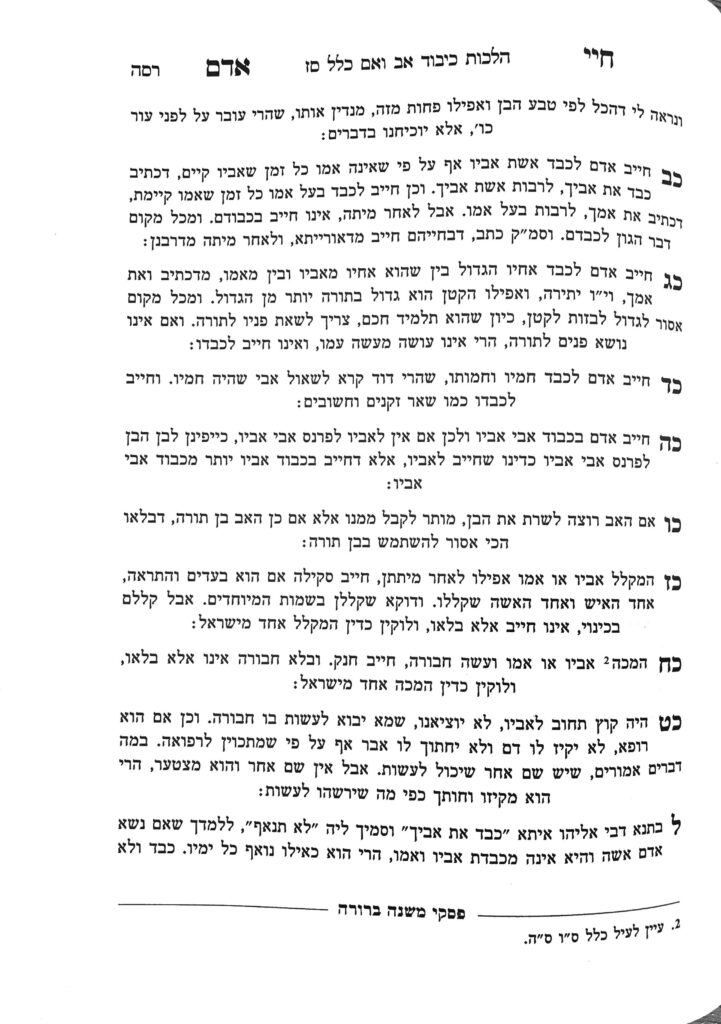We are beginning siman 22. In the next few simanim, the Chayei Adam discusses other people to whom children must give kavod as an adjunct to kibud av v’eim. The Chayei Adam begins with parents who have remarried, and a child’s chiyuv to those stepparents.
The Chayei Adam writes that a child is chayav to give kavod to their father’s wife as long as the father is alive. We learn this chiyuv from the first es in the pasuk kabeid es avicha v’es imecha. Similarly, a child is chayav to give kavod to their mother’s husband as long as the mother is alive. We learn this chiyuv from the second es in the pasuk.
After the biological parent has died, there is no longer a chiyuv kavod to the stepparent. Nevertheless, it is still proper to give them kavod. The Sma”k takes this halacha one step further and holds that, although there is no longer a chiyuv deoraysa, there is a chiyuv miderabanan to continue to give kavod to the stepparents.
Rav Yitzchak Zilberstein brings a story in which a mother passed away young, and when the father remarried, the children from the first marriage were raised lovingly by the stepmother. The child had much love and respect for their stepmother. Eventually, the father and stepmother divorced. When one of the children was making a simcha, they wanted to invite the stepmother out of hakaras hatov for all that she did for them. However, the father stated that he does not want his ex-wife to be invited to the simcha, and would not attend if she did. On the one hand, they have a chiyuv of kibud av to their father, and no chiyuv at all to the erstwhile wife of their father. However, they felt and have a chiyuv hakaras hatov to their stepmother.
Rav Zilberstein presented this question to Rav Elyashiv, ztl. Rav Elyashiv responded, based on what we have learned (shiur 1340), that if a parent wishes a child do something against a mitzvah in the Torah, the child should not listen to them and there is no chiyuv kibud av v’eim. Therefore, they should invite the stepmother due to their mitzvah of hakaras hatov, and they will need to work out the technical details appropriately.
Even if the child has not benefited from the relationship between their parent and stepparent, and there is little feeling of hakaras hatov, the very fact that the stepparent is the husband of their mother or wife of their father should engender some feeling of respect, and therefore the Chayei Adam writes that it is proper to continue to give them kavod.
Summary
The chiyuv kibud av v’eim extends to stepparents, as long as the biological parent is still alive. After the biological parent has died, it is still proper to give kavod to the stepparent, both when the stepparent has taken care of the child and even if they had not.



